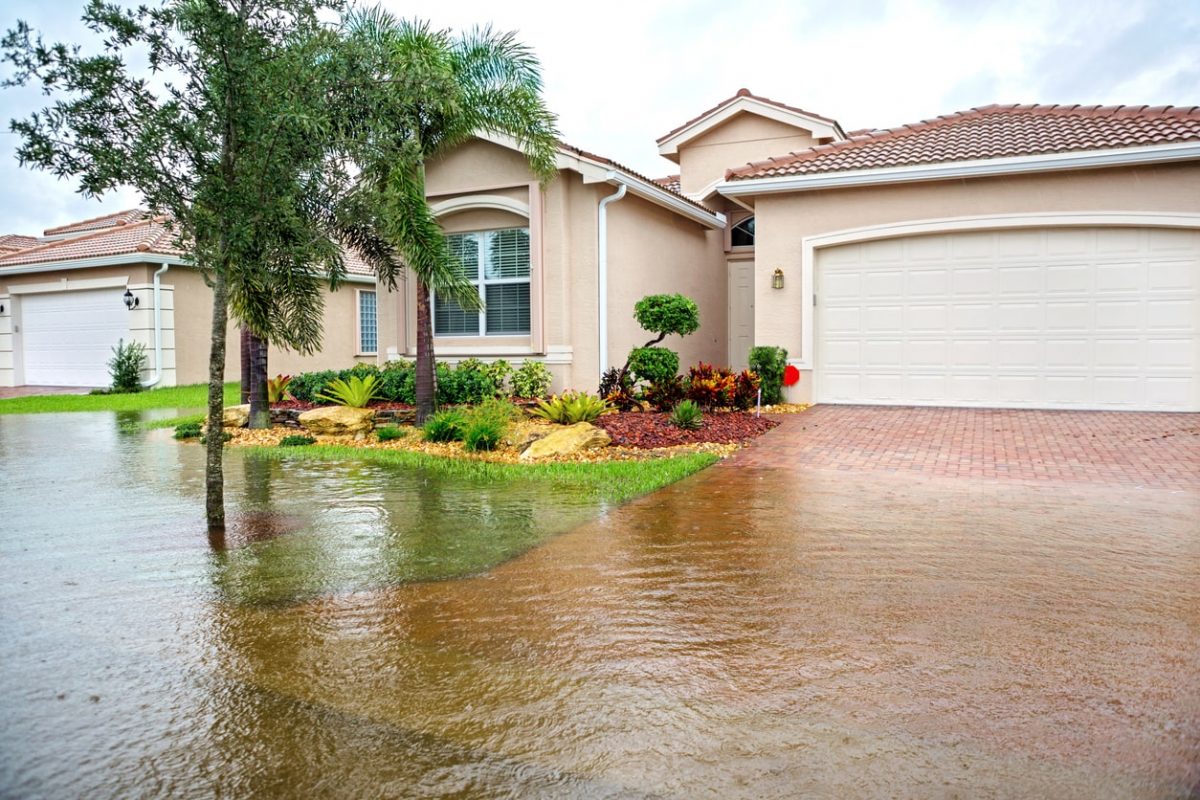
Your home is likely to be one of the biggest purchases of your life. Homeowners insurance helps protect this investment and may make the difference between minor inconveniences and major financial losses. However, while a standard homeowners insurance policy provides basic coverage, the biggest gap in coverage is flooding. All homeowners policies exempt flood damage, which is why flood insurance exists.
Let’s take a closer look at these two policies, what they cover, and what they don’t.
Homeowners Insurance vs. Flood Insurance
Homeowners policies vary based on your home and your circumstances. Your basic policy may reimburse your losses from several causes, such as fire and theft, but it won’t pay for flood damage.
Flood insurance is exactly what the name suggests, covering damages due to floods and flooding. While your homeowners insurance may pay for water damage due to broken pipes, flood insurance pays for damages caused by the rising of a body of water that covers normally dry land.
Homeowners insurance covers many types of water damage. If your pipes burst and flood your house or your toilet overflows or if rain comes in through a suddenly damaged roof, homeowners insurance pays. It won’t pay, however, if you were negligent, such as knowing about a roof leak and didn’t bother to fix it. If a roof leak or a pipe break results from age and deterioration, insurance will only cover the damage to your house contents, but not roof or pipe repairs.
Flood insurance kicks in when water comes at you over the ground such as rainstorms that flood your yard, lakes that overflow, or storm surge. Like homeowners policies, flood insurance covers your house and possessions. There are exceptions: flood insurance doesn’t cover destroyed money or valuable papers, such as checks or stock certificates.
Key Considerations
Your homeowners insurance agent can tell you if your house is located in a flood zone. You are likely to need flood insurance if your home is near a river that could overflow its banks, located on a coastal region or against a hill that may experience mudslides. However, don’t assume that you only need flood insurance if you’re located in a flood zone!
Read your homeowners insurance carefully to determine what your insurance company won’t cover, such as tidal water and sewage backups. Deciding whether you need a special policy to cover damages due to floods depends on your unique circumstances; however, it is always better to be safe than sorry. If you carry a mortgage on your home, your lender may require you to purchase this type of coverage. If you own your home, consider your flood risk, as well as how much money you can afford to lose due to uncovered expenses.
About Transparity Insurance Services
Transparity Insurance Services was founded for the purpose of helping clients to ensure their property and assets with no hassle. We are committed to providing a simple, easy, efficient, and positive experience to all of our clients, and prioritize open and transparent communication with our clients. Through our excellent customer service and technology, we can help you to find the right insurance program at a competitive price. Contact us today at (855) 889-2037 to learn more about what we can do for you.

 Leave a review on google
Leave a review on google